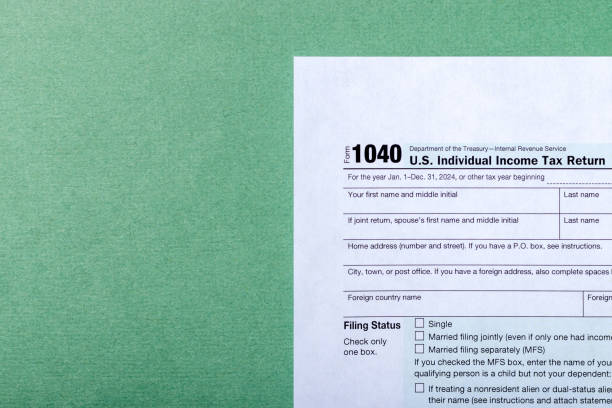In the final part of my estate planning series, I would like to tackle more complicated themes that build on the first two parts. The first thing that I would like to discuss in this article is a trust that was once used frequently before portability. The Bypass Trust used to work like this: with an AB Trust design, as used with a married couple, when the first spouse dies the “A” Trust is funded with an amount equal to the applicable estate exclusion amount in order to minimize the federal and state estate taxes. Any remaining marital assets would then transfer to the “B” Trust for the other spouse’s benefit.
It used to be that assets owned by the deceased spouse receive a basis adjustment at his or her death. The marital assets that are included in the surviving spouse’s estate get an additional basis adjustment at the surviving spouse’s death. Although the bypass trust avoids estate tax, assets held in this trust do not receive a basis adjustment when the second spouse dies. But the future growth of these assets remains outside the gross estate at the death of the second spouse.
[This is the final part of a three-part series on estate taxation strategies. Click to read parts ONE and TWO.]
This was all before portability, of course. In 2017, if a married couple elect portability, then the estate tax exemption amount is almost $11 million. Today an AB Trust or even an ABC Trust is used for blended families to protect the assets of a surviving spouse and children from creditors, and to shield assets in the event that a surviving spouse remarries and subsequently divorces.
Especially for blended families, the AB Trust can be a critical estate planning tool. At the death of the first spouse, their assets are split among the Family, or “B” Trust and the Survivor’s, or “A” Trust. The Family Trust is irrevocable, which in addition to offering estate tax advantages, also helps guarantee that the assets it holds will be preserved for the decedent’s children. The surviving spouse is entitled to the income from the trust, which provides for this surviving spouse’s support during his or her lifetime, while the decedent’s children have the security of knowing that the Family Trust assets are there for them. This eliminates concerns about a new step-parent getting all the money intended for the kids.
Enter the ABC Trust, or the Qualified Terminable Interest Property Trust (Q-Tip). An ABC Trust is used when the married couple is getting dangerously close to the estate tax exemption. Similar to the AB Trust, on the death of the first spouse, the trust assets are divided so that the survivor’s share (generally one-half) is allocated to the survivor’s trust (i.e., Trust “A”). The decedent’s share is divided into Trust “B” and Trust “C.”
One of these trusts receives assets up to the amount of the estate tax exemption. This trust is often referred to as the “Exemption” or “By-Pass” Trust (i.e., Trust “B”).
Any amount of the decedent’s share above the exemption is funded to the other trust (i.e., usually Trust “C”). This trust is often referred to as the “Marital Deduction Trust.”
On the surviving spouse’s death, Trust “A” and the assets of the Marital Deduction Trust (i.e., usually Trust “C”) will be subject to estate tax together with the survivor’s assets if the total exceeds the exemption amount. The assets of the By-Pass or Exemption Trust (i.e., Trust “B”) including the growth thereon, will not be subject to the estate tax on the survivor’s death.
After the first spouse’s death, Trust “B” and Trust “C” will each usually be required to file their own income tax returns. The net income of these trusts generally is payable to the survivor and passes through to the survivor for income tax purposes. The Bypass or Exemption Trust (and often the Marital Deduction Trust) will have limits and restrictions on the availability of principal for the survivor.
The advantages to an AB Trust or ABC Trust would be:
- Creditor protection. Note that protection varies from state to state, so make sure you consult an attorney.
- Protection of subsequent spouses. If a surviving spouse remarries and is again predeceased, the unused exclusion amount from the first decedent spouse is wasted if portability alone was relied upon for estate planning.
- Spendthrift protection. By planning to place assets in an AB trust when the first spouse dies, a couple can predetermine how the surviving spouse will benefit, in addition to controlling the assets for children and grandchildren. When a surviving spouse remarries and estate documents are redrafted to provide financial assistance to the new spouse, assets may be comingled. If done without careful consideration to the existing and new family structure, children from the previous marriage could be accidentally disinherited or may not benefit in the manner in which the deceased first spouse would have wanted. In that regard, an AB trust can provide for spendthrift protection.
- No probate. Assets in the AB trust will avoid probate when the surviving spouse dies.
Just because the estate tax exemption is almost $11 million when you add portability, doesn’t mean that Bypass Trusts are a thing of the past.
—————-
Craig W. Smalley, MST, EA, has been admitted to practice before the Internal Revenue Service as an Enrolled Agent, has a Certificate in Taxation from UCLA, and is a Certified Tax Resolution Specialist. He has been in practice since 1994. He is the CEO and Founder of CWSEAPA, PLLC, Tax Crisis Center, LLC, and Cannabis Accounting Group. All three companies have offices in Delaware, Florida, and Nevada. He has been published in the New York Times, Chicago Tribune, NASDAQ, Yahoo Finance, Christian Science Monitor, and is a columnist for accounting trade publications, including AICPA Tax Insider, Ganjaprenuer., CPA Trendlines, and Cannabis Business Executive. He specializes in taxation, and is well versed on U.S. Tax Court rulings. He has appeared as a guest on countless radio shows and podcasts. He can be reached at craig@cwseapa.com.
Thanks for reading CPA Practice Advisor!
Subscribe Already registered? Log In
Need more information? Read the FAQs
Tags: Tax Planning





